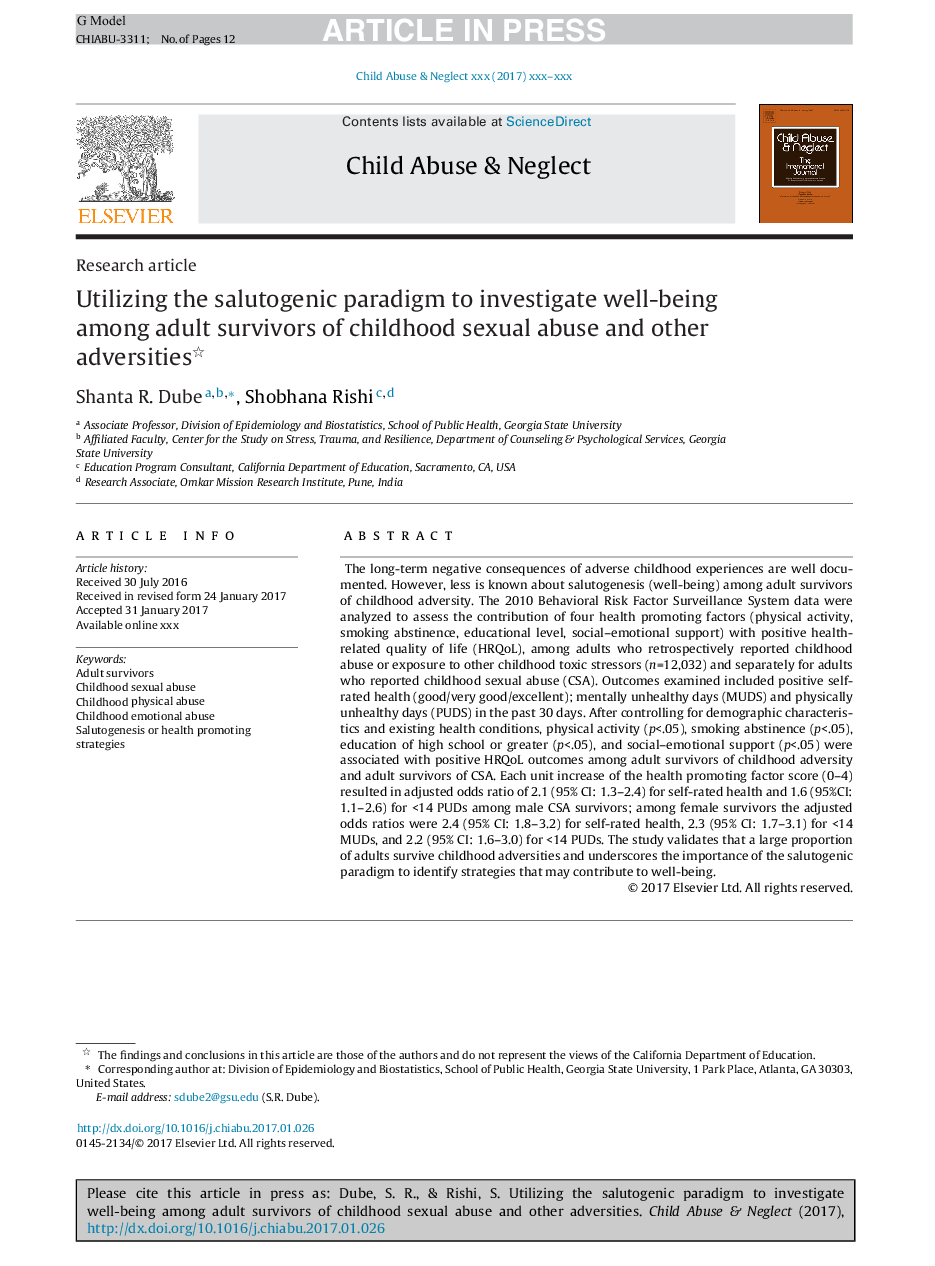ترجمه فارسی عنوان مقاله
استفاده از پارادایم خوشایند برای بررسی رفاه در بین بازماندگان بزرگسالان از سوء استفاده جنسی از کودکی و سایر موارد
عنوان انگلیسی
Utilizing the salutogenic paradigm to investigate well-being among adult survivors of childhood sexual abuse and other adversities
| کد مقاله | سال انتشار | تعداد صفحات مقاله انگلیسی |
|---|---|---|
| 134183 | 2017 | 12 صفحه PDF |
منبع

Publisher : Elsevier - Science Direct (الزویر - ساینس دایرکت)
Journal : Child Abuse & Neglect, Volume 66, April 2017, Pages 130-141
ترجمه کلمات کلیدی
بازماندگان بالغ، سوء استفاده جنسی از دوران کودکی، سوء استفاده فیزیکی دوران کودکی، سوء رفتار عاطفی دوران کودکی، سلامتوژنز یا استراتژی های ارتقاء سلامت،
کلمات کلیدی انگلیسی
Adult survivors; Childhood sexual abuse; Childhood physical abuse; Childhood emotional abuse; Salutogenesis or health promoting strategies;

